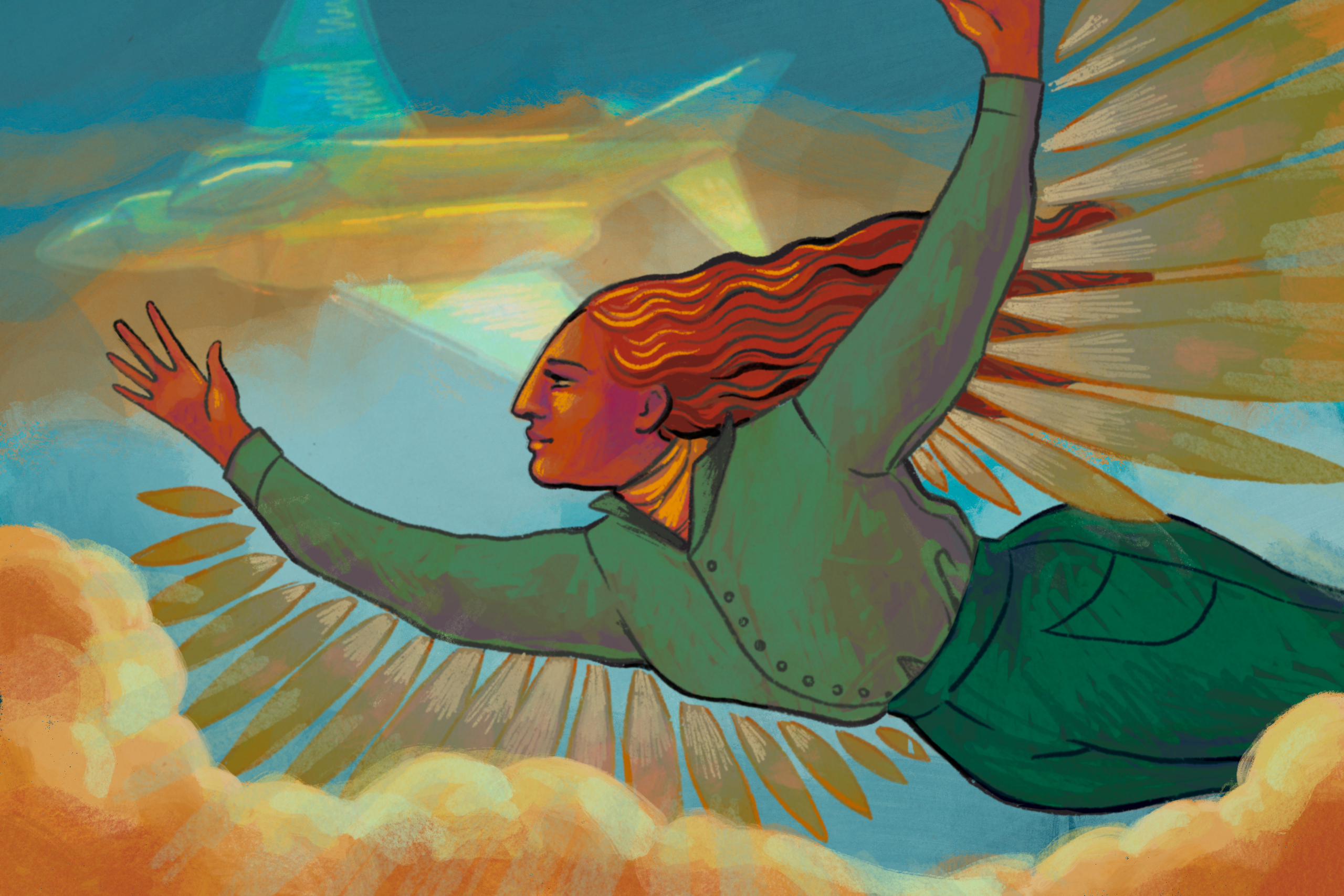My grandfather was a pilot in the Imperial Iranian Air Force. Before the 1979 revolution, he had flown missions across border lines throughout the Middle East. One day, he was in home territory near the airport, with no enemy in sight. He had just lifted off when, without warning, the motor of his F-4 Phantom II caught fire. He ejected immediately, but his co-pilot was not so lucky. As my grandfather hurtled downward, his parachute only half opened, not completely slowing his fall. He remembers seeing the coastline as he tumbled and the gull-grey jet exploding into flames. He was rushed to the hospital, blackened with smoke from head to toe, multiple bones broken.
“Weren’t you scared?” I asked him. He took a deep breath and said that there was no time to be scared. Being a fighter pilot means being ready for anything at all times.
For as long as I can remember, I’ve had a deathly fear of flying. When I was 12 years old, my parents surprised my brother and me with a trip to Disneyland in California. I immediately felt nauseous thinking about getting on that plane. I suggested we drive instead. My parents were unimpressed.
I look back at an old photograph of my grandfather when he was only 21. He is tall, with dark features, wearing his flight suit and a big grin on his face. Today, you can find him dressed in his favourite patterned long-sleeve shirts and an ascot cap. Retired, he spends a lot of time with his children and grandchildren on Vancouver’s North Shore. He loves to debate politics with friends, dabbles in birding, walks along the Seawall, and watches action movies on Netflix.
He lives a quieter life now, but he still gets that same grin on his face if you ask him about the old days. When he was a kid, he explains, he felt most alive when he was in an airplane. “You may know many doctors, teachers, lawyers, and so forth—but being a fighter pilot is one of a kind,” he explains when I ask why he chose such a high-risk profession.
“When you are up in the sky, just think about how relaxing it is to be above the clouds.”
He loved flying despite the dangers. I ask him what he thought about, and the first word that comes out of his mouth is “beauty.” He liked being in the air because of the sights, he says with a smile: mountains covered in snow, lakes, woods, farmland. “When you are up in the sky, just think about how relaxing it is to be above the clouds.” To me, flying is anxiety, but to him it was freedom.
It seems like it should be in my blood to fly. I feel most like myself when I’m travelling, but my fear of flying has only worsened as I get older. As an adult, I’ve travelled across North America and visited Europe, Asia, and beyond. Each time, I get so anxious that I become physically sick. Seeing a specialist only helped temporarily.
The physical and mental distress I experience on a plane feels outside my control. And that’s something I’ve realized about the fear of flying: I’m afraid because I’m not in control.
My grandfather, like all pilots, had to go through a physical exam before receiving his licence. Pilots must be the right height and weight, and their vision, blood pressure, and neurological functions are all tested. They have to get enough sleep, and their health—like the planes they fly—is checked regularly. “Your mind and body have to be strong before you learn how to fly a plane,” he explains. I feel the opposite when I step onto the boarding ramp. But knowing that pilots are rigorously trained, tested, and monitored makes me feel a little more at ease.
Studies suggest that more than one in 10 Canadians have a phobia. Dr. Jennifer Trew, a registered psychologist in North Vancouver, explains that emotional reasoning comes into play in these conditions. “We’ll remember all the examples of disasters that we’ve read in the news or heard about,” she says, “but we don’t think about the millions of flights that have landed safely.” We hear more about plane accidents on the news and social media because of their rarity. “One of the most important pieces in terms of treating phobia is gradual exploration where we actually come face-to-face with our fears and learn to work through the anxiety differently through actual exposure,” Trew says.
To this day, my grandfather still meets up with his old fighter pilot friends who live in Vancouver and relives the old memories. He tells me to pursue my dreams, just as he did. With his advice in my back pocket, and plenty of Gravol, I will keep on travelling, even if it scares me. I take his strength with me every time I board. I won’t put my fears over my passions: that much is within my control.
Read more from our Autumn 2023 issue.









